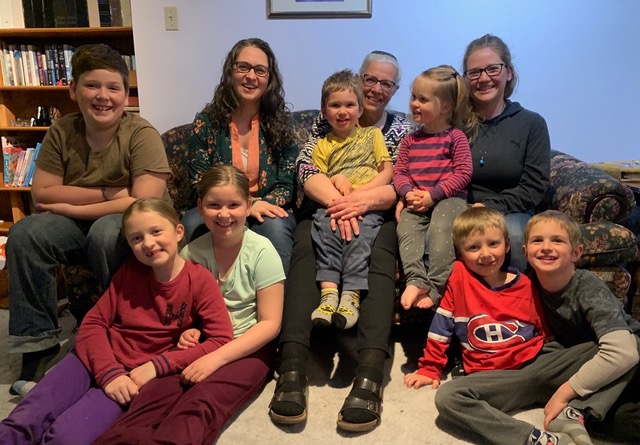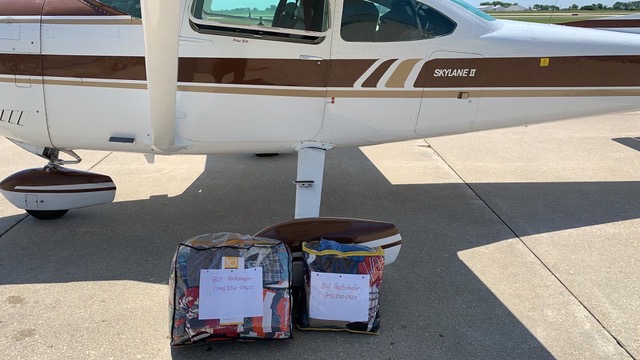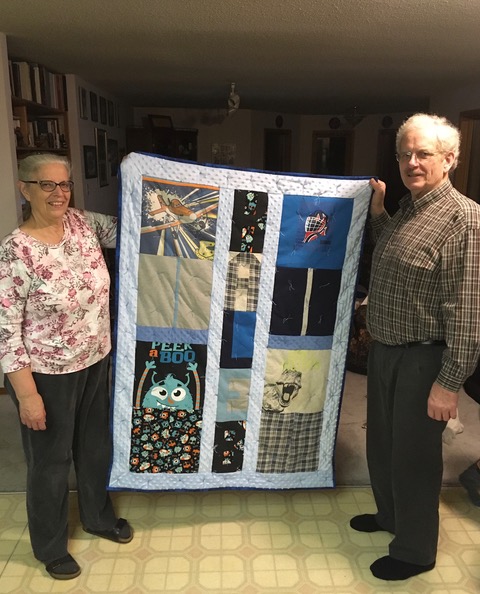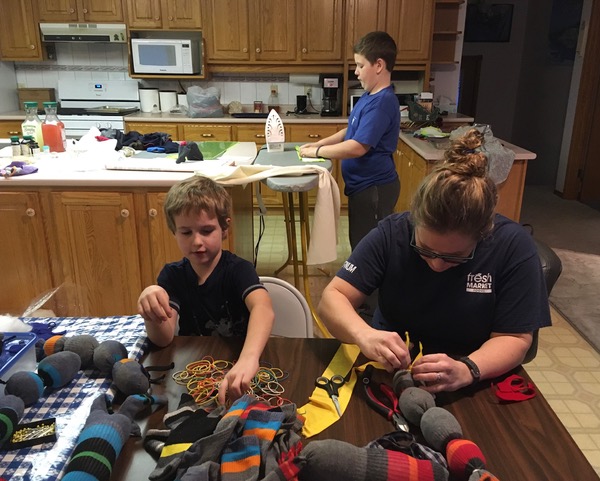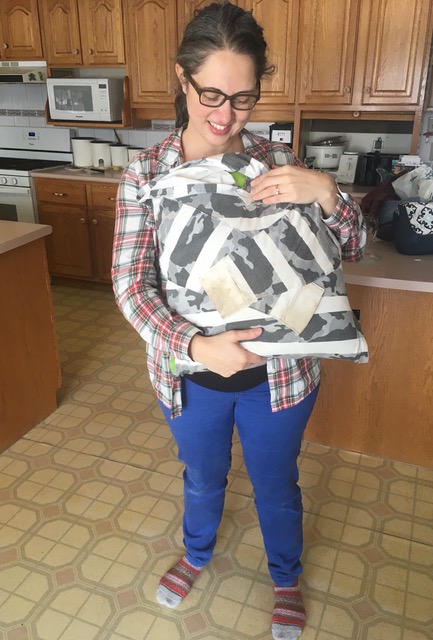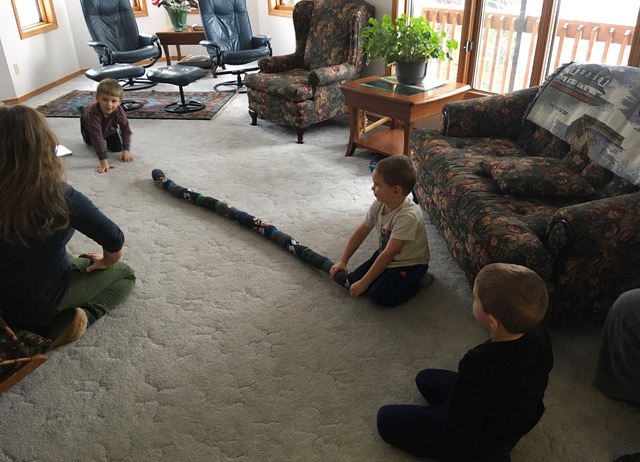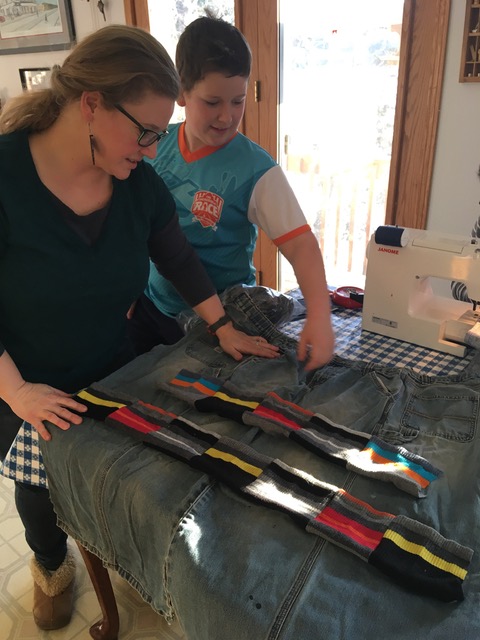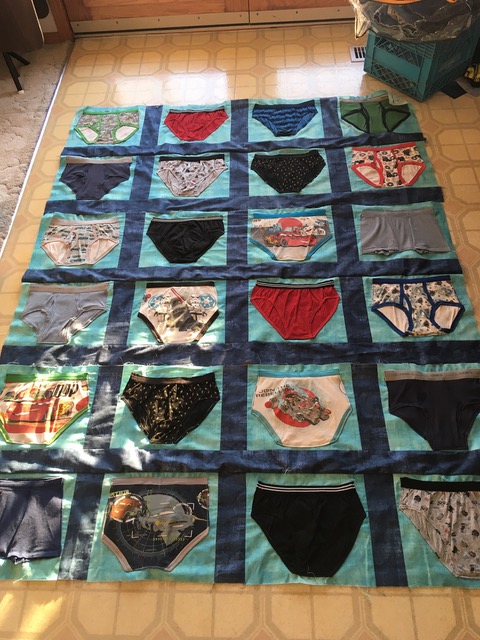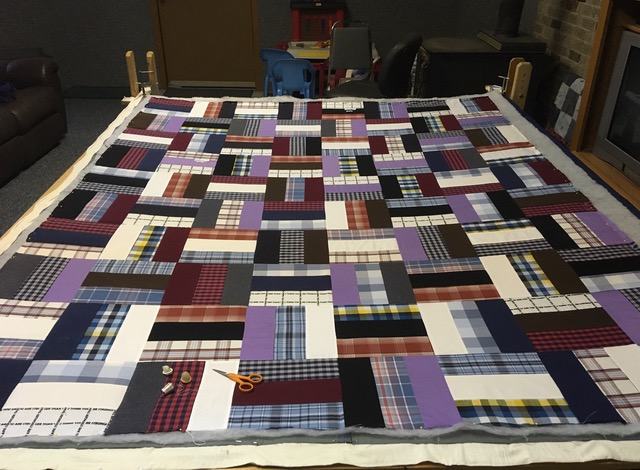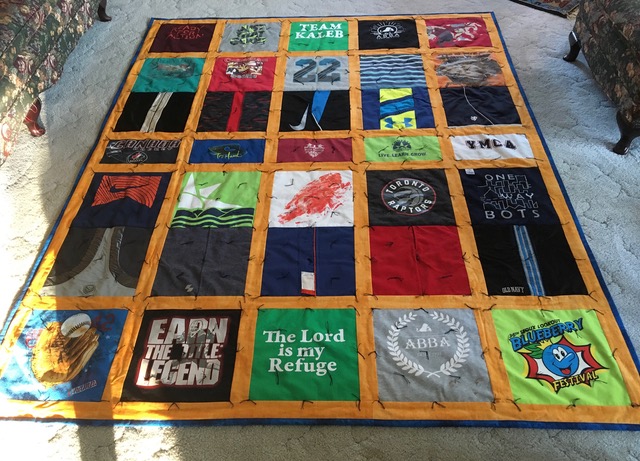A collection of pandemic related stories from alumni around the world.
“From Bannock Drops to Himalayan ‘Hikes’” by Delores Swartzentruber (’98), Thunder Bay, Ontario
One activity I was involved in pre-COVID, was visiting people from remote First Nations reserves who live here in hospitals or elders’ homes. Most of these women have no family in town. They reside here indefinitely because the various medical services they need are not available on the reserves. These friends get very lonely. Because of the distance family can rarely visit. Now suddenly, I’ve had to rethink visiting in person and switch to phone conversations, texting, and skype calls. The one request I can still fulfill is making tea and bannock to drop off at the door. I like to add little treats of fresh fruit or candy too. Sometimes I look up Ojibway scriptures to play on my phone while the ladies listen. It’s a real treat for them to hear their native tongue as almost no one they interact with speaks Ojibway. Today someone requested cinnamon rolls, so there’s a day’s work! But I’m happy to oblige to bring comfort and sweetness to a blind friend who sits in darkness each day, but has the light of Jesus in her heart.
Here in Ontario the quarantine rules are quite strict. We can’t even leave our properties without special permission. So instead of taking my normal 30 minute walk outside each day, I’ve had to resort to the treadmill. For motivation, I’ve been watching travel documentaries on different parts of the world. I especially enjoy “This Is How We Live Life” documentaries of faraway places — villages tucked high in the Himalayan Mountains or remote desert regions. As I watch local life my heart aches when I see the rigid religious duties needed to appease the various gods. This has led me to pray for the people in these regions. I pray to the Lord of the harvest to send workers, radio broadcasts, Bibles, and teachers to live out the life and love of Jesus among people who have never heard. This gives great purpose to walking on a boring treadmill every day!
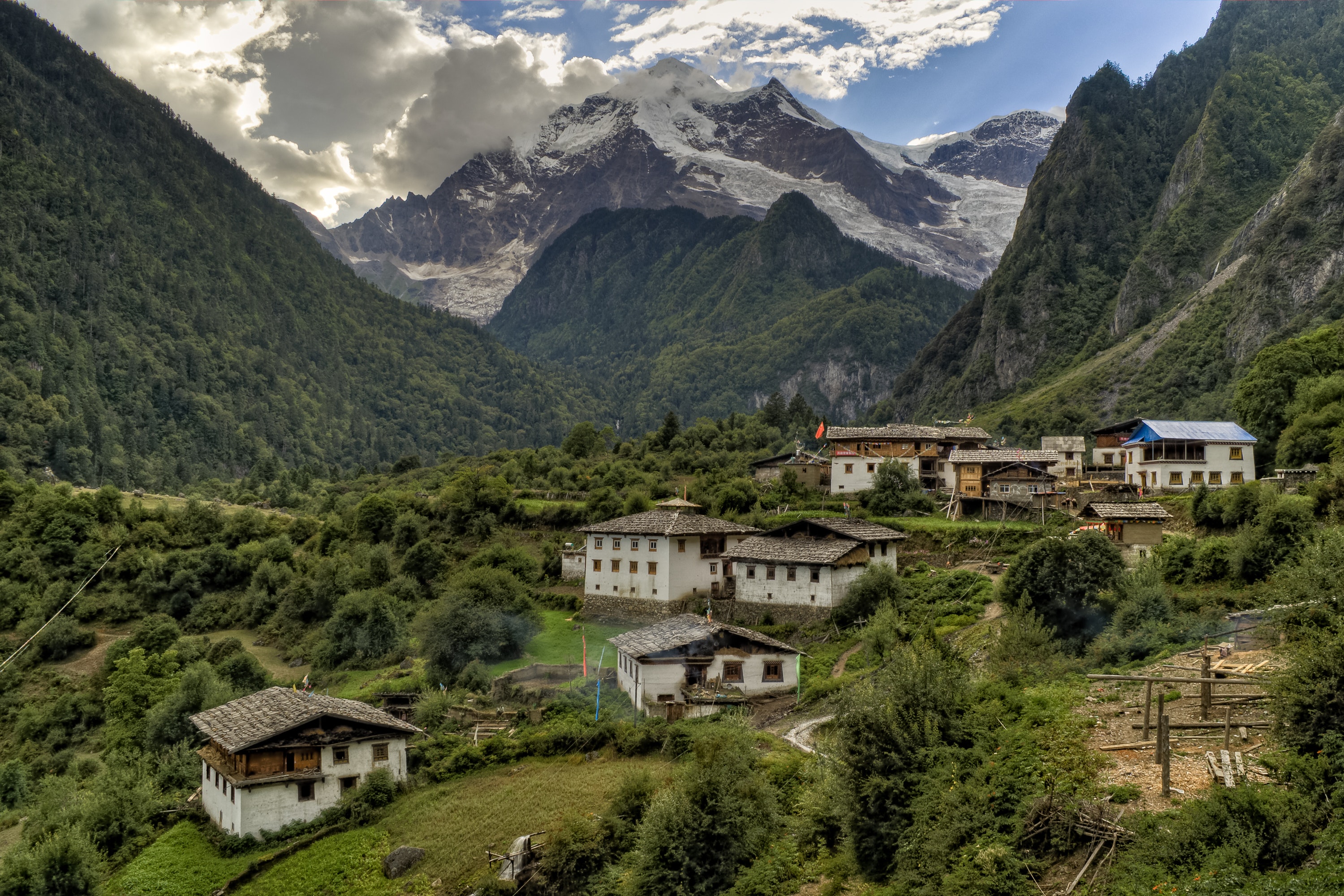
“Seeing COVID through Dutch Eyes” by Cynthia Heiner (’96), The Netherlands
This morning I saw a neighbor at the elevator door again, taking her two children to school. But this is a neighbor I don’t enjoy seeing. We’ve met at the elevator door before: me on my way down from the fourth floor, her trying to get in on the third. She can’t understand why it’s so important for me to take the elevator alone with my son.
Here in The Netherlands we are encouraged to stay 1.5 meters away from other adults and to use face masks in public buildings. I’ve developed a strong 1.5 meter radar and instinctively monitor the movements of others to keep that safe distance. That’s why I can’t share the small elevator with her. I try to explain myself as the elevator door closes, but she gets angry and stomps dramatically down the stairs with her children. She doesn’t know that I’m also rushing to get my foster son to the van that takes him to his special needs school. Or how hard it’s been to get him out the door this morning. She can’t know that my husband’s lung disease makes him particularly vulnerable to this virus. She can’t know how much it breaks my heart to see her angry with me. Again.
I notice the differences of opinion about how to deal with this virus, here in my building and across the ocean. My cousins with their spacious yards in Pennsylvania can’t understand what it’s like to live in an apartment building in a very densely populated country. They can’t know how hard it is for us to keep ourselves isolated to protect my husband’s vulnerable health. So, we’re grateful for the government guidelines that try to keep the world just that much safer for him and others like him, and we’re grateful for those who willingly follow those guidelines to reduce the risk for others.
Bikes are our only means of transportation now that we’re avoiding public transportation. But even on the convenient bike paths, I expect my fellow humans to notice me enough to keep a distance. As an American I’ve noticed differences in personal space here in The Netherlands. I wasn’t the type to be overly friendly in public, but I actually miss the brief eye contact and casual exchanges with strangers that tend to happen more in the U.S., compared with what seems to be a cold disregard for others here. Meanwhile, my Dutch husband helps me understand subconscious differences in our need for personal space. When first navigating U.S. grocery stores, he would respect people by ignoring them, but he got strange looks and a sarcastic “Excuse me!” when he got too close without acknowledging the other person. Now our personal space needs have grown.
Our children pick up our anxieties. Our four-year-old now repeats my frustrated, “People!” – my expression of exasperation when there are too many other bikers clogging the bike path. I’ll try to be more careful about that, try to fathom how God could possibly love all these careless people, pray for a change of heart, for the ability to see things from the perspective of others, and for a chance to have a positive exchange with that neighbor from the third floor.
“Lockdown Empties Streets but Expands Outreach” by Sam (’92-’94) and Becca Gunti, Hyderabad, India
We never dreamed we’d see the streets of Hyderabad completely empty! There are always people on the roads. There’s even a buffet that opens at midnight, and tea shops are up and going by 5 am.
Then came the COVID lockdown. No one was permitted in the streets on pain of a beating by the police. The government was serious about controlling the spread of the virus in this city of over nine million.
After our initial shock, Good Life Ministries (GLM) started meeting over zoom with our main ministry team members. As we talked, shared, and prayed together for hours on end God touched us and our families. We took stock of what needed to be changed and rearranged. We saw there were still many open doors.
People had cell phones so churches relaunched on zoom. Friends with internet shared with those who didn’t. Many friends and family members who would not have come to the church now openly joined the zoom services.
We also started a Ladies Bible Study and prayer time over zoom every Monday through Friday. This was a huge blessing and encouragement to the women who felt so alone and locked up inside with their children.
A Men’s Bible Study and prayer time also met every day and became a powerful time of encouragement. The scheduled one-hour meetings often turned into three or four hours.
Now since things are opening up we’re seeing the fruit of this season. We’re currently preparing 30 new people for baptism in various locations.
We were also able to avail ourselves of outside speakers from the U.S. who could help teach via zoom at our worker training and mentoring sessions.
Even though schools were shut down, our teachers adjusted to teaching over zoom. Schools are still online. It is a bigger challenge to keep children focused, so our teachers are also making home visits.
We’ve normally run a VBS each January, and in 2020, shortly before the lockdown, we had reached more than 20,000 children through VBS.
As the lockdown continued into January of 2021 the children started getting concerned. They were eagerly anticipating the new songs, Bible stories, and crafts.
As we prayed God helped us come up with a plan. GLM prepared and printed song sheets, craft papers, and lesson booklets. Then we trained volunteers in over 400 villages to each run their own local VBS. In large villages we had more than one group so ended up with over 600 VBS classes. Children were divided into beginners, ages 5-7, primary, ages 8-11, juniors, ages 12-15, and seniors, ages 16-18. We made sure the volunteers each had a cell phone or some kind of internet access.
Songs and lessons for each class were pre-recorded and put on our YouTube channel for the teachers/volunteers to share with their classes. They worked on crafts together, and we sent snacks for each of the children to have before going home.
In this dispersed way we reached over 30,000 children plus an additional 10,000 online viewers with our VBS lessons.
Christmas is also a special time of outreach in India. We often hold open air meetings and give out gifts to the children. This year we decided to have staff and volunteers visit children’s homes to meet families and give out gifts. This was especially appreciated as it’s been a tough time financially for the community.
Here is a video clip of the children receiving their gifts!
We’ve also felt led to serve the many people who had migrated to Hyderabad for work, and got trapped here overnight, without jobs. Some were unexpectedly forced to return to their home villages, walking hundreds of miles to wait out the pandemic.
Many of those GLM works with are daily wage laborers, so when their work was shut down, they did not have extra resources. We’ve been blessed to be able to provide some of these needy ones with their “daily bread.”
“Creative Grieving” by Susan Hochstedler (‘74), Sioux Lookout, Ontario, Canada
Our 11-year-old grandson, Kaleb, passed away after a two-year battle with cancer in May 2020, two months after COVID was declared a global pandemic. His family lives in Brazil and travel restrictions prevented us from going to the funeral, and later to the memorial service in October. We longed to be with our son and family during this time, but it just wasn’t possible. Our daughter-in-law asked if I and our two daughters-in-law living here would be willing to make memorial items out of Kaleb’s clothes, and we readily accepted the challenge!
Through a series of “God connections” the bundles of clothing made their journey all the way up here to Canada (making the last leg of the trip from a small airport in Illinois to Sioux Lookout in Grandpa Bill’s plane), and we got busy! It has been such a healing joy and blessing to work on this project together; sometimes with laughter, sometimes with tears, but each stitch made with love!
It was precious to work on our individual or combined projects in the same physical space, not needing to “social distance.” Creativity is therapeutic, and it helped us work through our grief and loss by telling stories, sharing memories, and repurposing new from the former. It was so special to see Kaleb’s cousins getting involved in the process, from providing ideas to actually helping to make the items. We’ve made quilts, pillows, an egg-gathering apron, stuffed animals, and Christmas tree ornaments. The final step will be reuniting the items with Kaleb’s family. As strong travel restrictions are still in effect, we look forward to seeing how God will “bring it to pass!”
